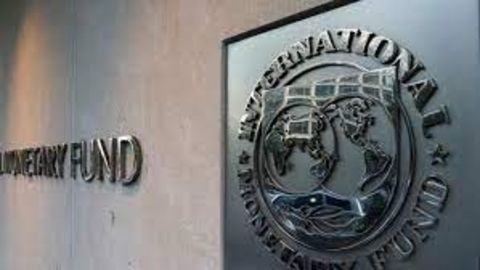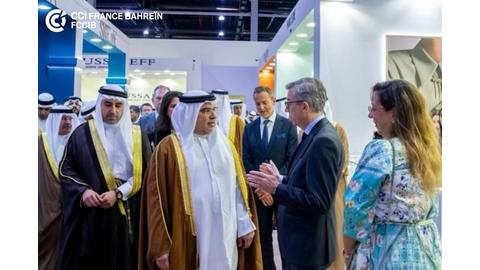Economy firm after fastest growth in a decade says IMF

Bahrain’s fastest economic growth in a decade last year and solid fiscal performance has been attributed to successful pandemic responses, continued reform momentum, and favourable commodity prices by the IMF.
Concluding the kingdom’s 2023 Article IV Consultation, an annual economic assessment that the international financial institution does for all 190 member countries, the IMF said Bahrain’s strong post-Covid-19 growth was driven by expansion in the financial sector, hospitality services, manufacturing and the public sector
Growing by 4.9 per cent in 2022, the highest since 2013, the kingdom’s gross domestic product (GDP) was driven by 6.2pc growth in non-hydrocarbon GDP while hydrocarbon GDP contracted by 1.4pc, said the financial institution’s executive board.
Gross domestic product (GDP) is the market value of all the goods and services produced by a country usually on a yearly basis.
The IMF added that with the economic recovery well under way, ongoing fiscal reforms, and higher oil prices, the state budget deficit declined significantly, narrowing to 1.2pc of GDP in 2022, from 6.4pc in 2021, while the overall fiscal deficit declined from 11pc to 6.1pc of GDP.
Government debt declined to 117.6pc of GDP in 2022 from 127.1pc of GDP in 2021. The current account improved markedly and posted its largest surplus in decades, estimated at 15.4pc of GDP in 2022, up from 6.6pc of GDP surplus in 2021.
Noting that growth is projected to moderate and risks remain, the IMF executive board of directors emphasised the importance of implementing a medium-term fiscal adjustment plan, safeguarding financial stability, and accelerating structural reforms.
It sees Bahrain’s growth slowing to 2.7pc in 2023, with non-oil GDP growing by 3.3pc reflecting fiscal consolidation, higher interest rates, and a base effect from 2022 strong growth.
Thereafter, growth is projected to stabilise at around 2.7pc over the medium term.
Nevertheless, significant uncertainty clouds the forecast, including from oil price volatility, international financial turmoil and ongoing tightening, and a slowdown in global growth.
Directors welcomed the authorities’ continued commitment to implementing reforms under the Fiscal Balance Programme (FBP), including the progress so far to enhance non-hydrocarbon revenue mobilisation and the continued spending restraint.
They underscored that implementing the current budget in line with FBP targets and continuing with ambitious reforms in the medium term are critical to ensure fiscal and external sustainability and reduce reliance on oil revenues.
The IMF also highlighted the importance of embedding fiscal reforms in a credible medium-term fiscal framework. Improving debt and fiscal transparency including by gradually reducing extrabudgetary spending would be important.
Agreeing that the exchange rate peg continues to serve Bahrain well as a monetary anchor, directors stressed that fiscal consolidation and structural reforms will support the external position, while monetary policy should continue to follow the Fed.
The officials emphasised the importance of freezing the government overdraft account at the central bank and developing a plan for its repayment, which will help bolster reserves and thus support the external position and the peg.
Bahrain’s banking system remains resilient with ample buffers and has so far withstood the phasing out of Covid-19 measures and tightening financial conditions, officials of the agency said.
They underscored that continued close monitoring of financial stability risks and further strengthening of macroprudential frameworks are warranted, given headwinds from tightening financial conditions.
Welcoming Bahrain’s ambitious structural reform agenda, the IMF officials encouraged the authorities to continue improving labour market flexibility and empowering women, and leveraging opportunities from regional integration.
Pressing ahead with climate mitigation, through a gradual phasing out of energy subsidies and further investments in renewable energy, would facilitate Bahrain’s climate transition without creating additional fiscal needs or weighing on growth, they added.
Source: https://www.gdnonline.com/Details/1286411/Economy-firm-after-fastest-growth-in-a-decade-says-IMF


